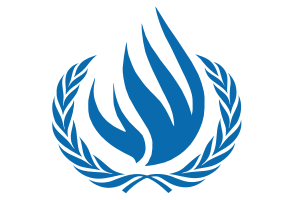- Home
- Internet
- Internet News
- Despite Indian opposition, UN passes Internet freedom resolution
Despite Indian opposition, UN passes Internet freedom resolution

Despite opposition on the issue from countries including China, Russia and India, countries promoting the resolution hailed the support of dozens of nations ahead of its adoption.
"This outcome is momentous for the Human Rights Council," US ambassador Eileen Chamberlain Donahoe told reporters.
"It's the first UN resolution that confirms that human rights in the Internet realm must be protected with the same commitment as in the real world."
The text had the support of 85 co-sponsors, 30 of whom are members of the HRC, Donahoe added.
Of the states that supported the initiative, Tunisia's ambassador Moncef Baati said it was particularly important for his country because of the role accredited to social networking websites in ousting president Zine El Abidine Ben Ali in 2011.
"The most important result of the Tunisian revolution is this right to freedom of expression...(this) is very important at the moment (in Tunisia) and it is for this reason that there is a strong commitment in Tunisia to consolidate Internet rights.
"Our link with all media networks during the revolution doubles the importance of this commitment to freedom of expression on the Internet which remains a major tool for economic development."
Other countries that backed the resolution on the Promotion, Protection and Enjoyment of Human Rights on the Internet included Brazil, Nigeria, Sweden and Turkey.
Catch the latest from the Consumer Electronics Show on Gadgets 360, at our CES 2026 hub.
Related Stories
- Samsung Galaxy Unpacked 2025
- ChatGPT
- Redmi Note 14 Pro+
- iPhone 16
- Apple Vision Pro
- Oneplus 12
- OnePlus Nord CE 3 Lite 5G
- iPhone 13
- Xiaomi 14 Pro
- Oppo Find N3
- Tecno Spark Go (2023)
- Realme V30
- Best Phones Under 25000
- Samsung Galaxy S24 Series
- Cryptocurrency
- iQoo 12
- Samsung Galaxy S24 Ultra
- Giottus
- Samsung Galaxy Z Flip 5
- Apple 'Scary Fast'
- Housefull 5
- GoPro Hero 12 Black Review
- Invincible Season 2
- JioGlass
- HD Ready TV
- Laptop Under 50000
- Smartwatch Under 10000
- Latest Mobile Phones
- Compare Phones
- Red Magic 11 Air
- Honor Magic 8 RSR Porsche Design
- Honor Magic 8 Pro Air
- Infinix Note Edge
- Lava Blaze Duo 3
- Tecno Spark Go 3
- iQOO Z11 Turbo
- OPPO A6c
- Lenovo Yoga Slim 7x (2025)
- Lenovo Yoga Slim 7a
- Lenovo Idea Tab Plus
- Realme Pad 3
- Moto Watch
- Garmin Quatix 8 Pro
- Haier H5E Series
- Acerpure Nitro Z Series 100-inch QLED TV
- Asus ROG Ally
- Nintendo Switch Lite
- Haier 1.6 Ton 5 Star Inverter Split AC (HSU19G-MZAID5BN-INV)
- Haier 1.6 Ton 5 Star Inverter Split AC (HSU19G-MZAIM5BN-INV)







![[Sponsored] Haier C90 OLED TV | Dolby Vision IQ, 144Hz OLED and Google TV in Action](https://www.gadgets360.com/static/mobile/images/spacer.png)









